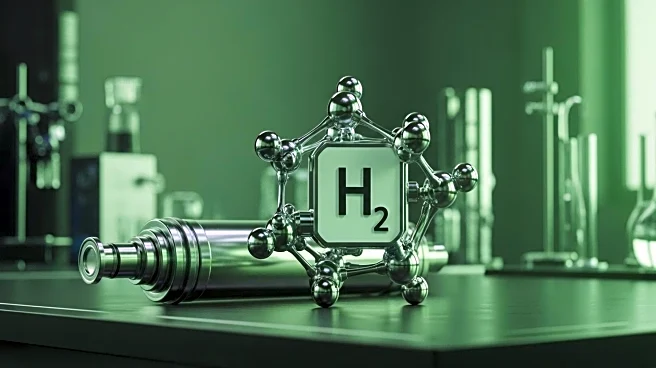What's Happening?
The European Union has significantly increased its funding for South Africa's green hydrogen project, elevating the Nelson Mandela Bay green-hydrogen-to-green-ammonia initiative. European Commission President Ursula von der Leyen announced a new €12-billion package to support South Africa's Just Energy Transition Partnership, surpassing previous funding commitments. The EU aims to position South Africa as a global leader in clean energy, with the Coega Green Ammonia project set to become a key player in the global shipping industry as green ammonia emerges as a preferred maritime fuel.
Why It's Important?
The EU's increased funding underscores the strategic importance of green hydrogen in the global energy transition. South Africa's project is poised to become a major hub for clean energy, potentially transforming the country's economy and energy landscape. The initiative aligns with global efforts to reduce carbon emissions and promote sustainable energy solutions. The funding boost reflects the EU's commitment to supporting renewable energy development in Africa, enhancing trade relations, and fostering economic growth through clean energy innovation.
What's Next?
The Coega project is advancing to the front-end engineering design stage, with final investment decisions expected by July 2026. Construction is anticipated to begin in early 2027, with commissioning by December 2029. The project's success will depend on securing additional private sector investment and overcoming regulatory hurdles. The EU's support may encourage further international collaboration and investment in South Africa's renewable energy sector, potentially leading to more green hydrogen projects across the continent.
Beyond the Headlines
The project's development highlights the growing importance of green hydrogen as a clean energy source and its potential to reshape global energy markets. The initiative reflects broader trends in international cooperation on climate change and sustainable development. The project's success could serve as a model for other countries seeking to transition to renewable energy and reduce reliance on fossil fuels.









